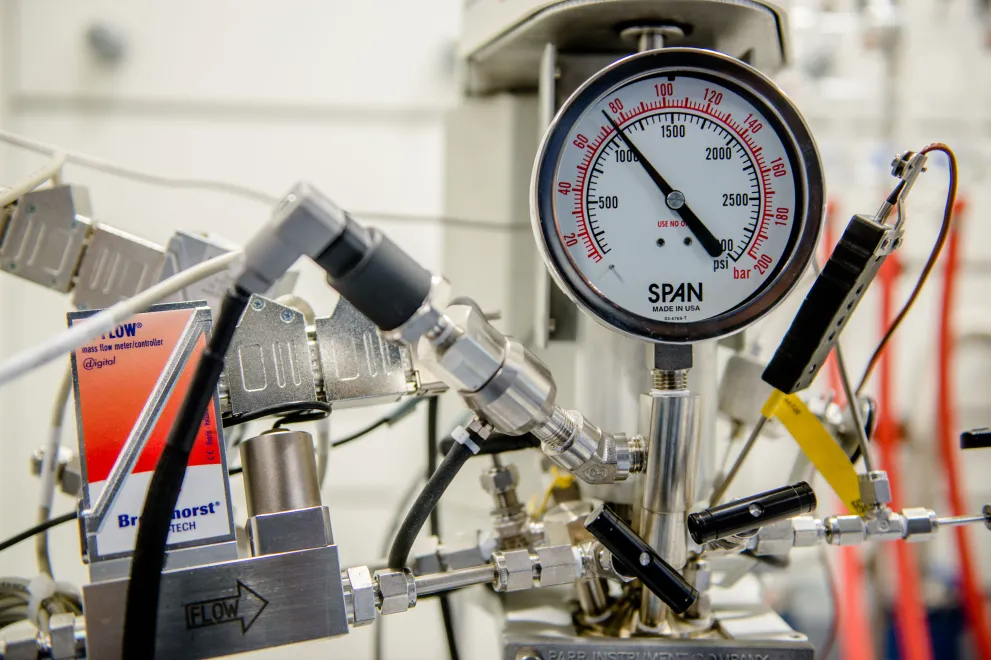
SFB/TR 247
Heterogeneous Oxidation Catalysis in the Liquid Phase
The aim is to produce chemicals sustainably and efficiently in the post-fossil age.
Almost all of our everyday objects have come into contact with at least one catalyst during their manufacture to make production cheaper, more environmentally friendly or even possible in the first place. Catalysis is thus a key technology in chemistry. Its design at the atomic level is the goal of the Collaborative Research Centre/Transregio.
A glimpse at chemical industry reveals how enormous the research demand in this field truly is: It is on the one hand dominated by thermal high-temperature processes with severe selectivity issues; on the other hand, oxygen redox chemistry is a significant bottleneck when it comes to chemical energy storage during the energy transition period. Photocatalytic water splitting with visible light, where water has to be oxidised into oxygen, still remains an unfulfilled dream for researchers. Accordingly, rather than focusing on oxidation reactions in individual areas, they conduct a comparative study to analyse processes under mild reaction conditions for thermal liquid phase catalysis, electrocatalysis, and photocatalysis.
The spokesperson for the second funding phase is Professor Kristina Tschulik, Chair of Electrochemistry and Nanoscale Materials at Ruhr University Bochum, and the co-spokesperson is Professor Stephan Schulz from the Institute of Inorganic Chemistry at the University of Duisburg-Essen (UDE). The research network has been funded since July 2018.


